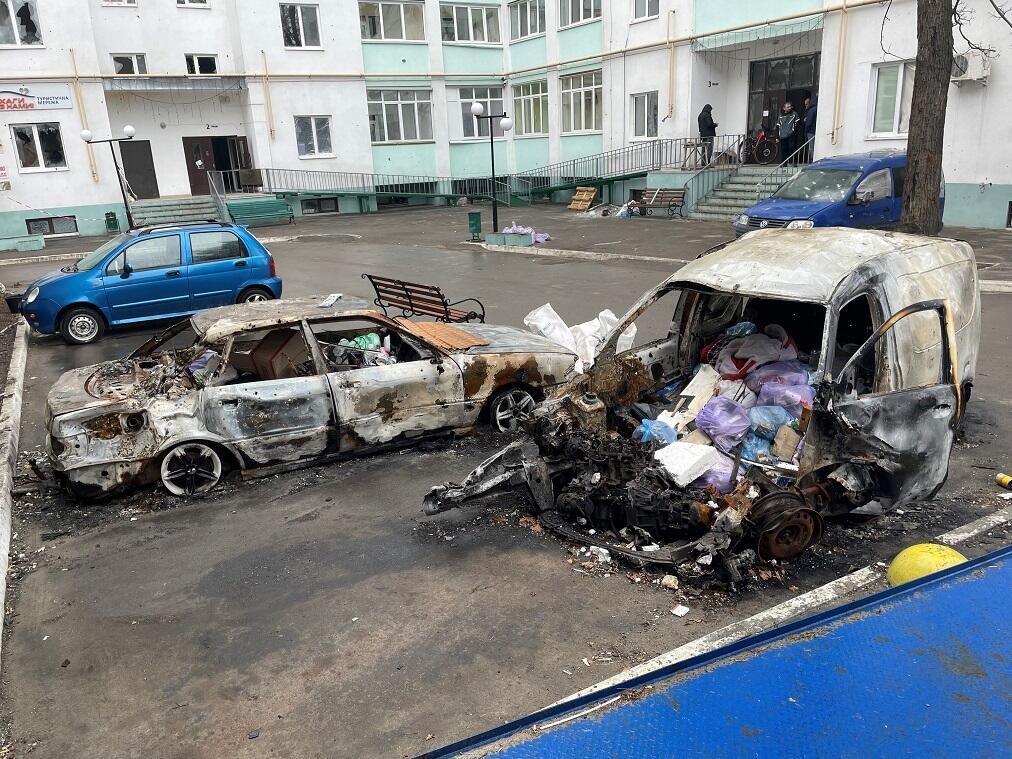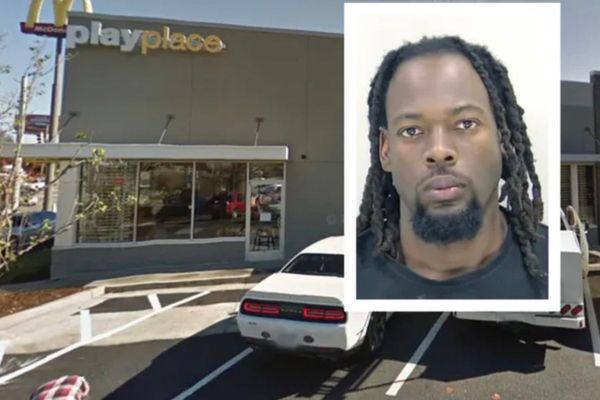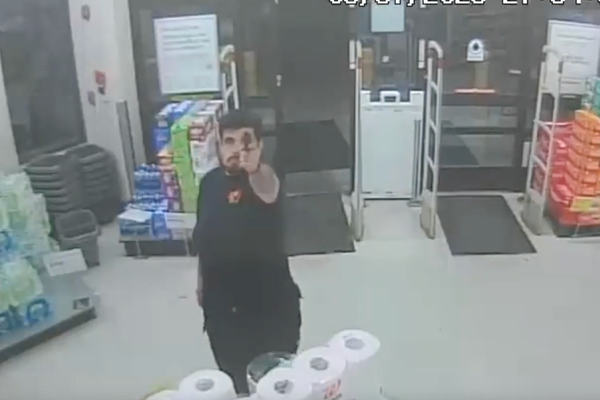Kyiv’s north-western suburb of Irpin bore the brunt of Russia’s failed advance on the Ukrainian capital and is now a field of ruins. Weeks after Russian forces pulled out, the town’s traumatised residents continue to bury their loved ones. Their harrowing accounts paint a bleak tableau of a month-long Russian occupation marked by relentless bombings, killings and sexual violence.
Watch FRANCE 24's exclusive report from Irpin and Bucha.
Russian troops withdrew from Irpin, some 30 kilometres north-west of the capital, in late March, after weeks of fierce clashes with Ukrainian soldiers and volunteers determined to protect their capital. As Moscow’s troops retreated from the northern suburbs of Kyiv, shifting their focus to Ukraine’s eastern Donbas, they left behind them a landscape of death and desolation.
Irpin was once a haven for foreign tourists and residents of Kyiv, who flocked to its riverbanks and parks for a little respite from the humdrum of the capital. But a month of indiscriminate bombings and bloodshed has transformed this formerly tranquil suburb into hell on earth.
Shell-shocked residents
Those who survived the ordeal are still in shock at the violence unleashed by “racist Russian and Chechen soldiers”, as Konstantin Godoskos, a Ukrainian national of Kazakh origin, describes the invaders. He fights back tears as he recalls the horror that descended on Irpin the day Russian troops overran the town.
“I was woken up by a loud blast on the night of February 24 [the day Russia launched its invasion],” Godoskos recalls. “I looked out the window to see what was happening and that’s when I saw hundreds or [maybe] thousands of paratroopers land at the nearby Hostomel airport. The sound of helicopters was deafening and terrifying, I couldn’t believe what I was witnessing.”

Two days later, Russian soldiers entered Godoskos’s apartment block and shot dead the building’s caretaker.
“The poor man didn’t even carry a weapon,” he says. “I saw this happen several times, soldiers killing people who were simply walking in the street.”
Russia has described its invasion as a “special military operation” to disarm and “denazify” Ukraine. It has steadfastly denied targeting civilians or committing war crimes, despite mounting evidence to the contrary.
Owing to its strategic location on the main road to Kyiv, Irpin was one of the first towns to be occupied by Russian troops. Their subsequent failure to advance on the Ukrainian capital meant the invading forces remained entrenched in Irpin for a full month – an agonising wait for the town’s hapless residents.
‘I saw them rape women and young girls’
On top of the killings, Godoskos says he witnessed “even more horrible” scenes, including sexual violence inflicted on women and children.
“I saw them rape women and young girls,” he says. “One of them was just 15. They took her to a basement. They weren’t Chechens or other nationals, they were Russian soldiers no older than 20. She managed to escape in the end because her rapists were so drunk they forgot to tie her up.”

Godoskos says he was forced to hurriedly bury 74 bodies during the town’s occupation, after pleading in vain for proper burial at the local cemetery.
“I told [the Russians] they were Christians and foreigners, just like me,” he says. “I begged them to lay the dead to rest in a cemetery, according to our faith. But they refused and ordered me to dig holes in people’s gardens and bury them there.”
‘My husband was killed, my apartment is destroyed, we lost everything’
By mid-April, Ukrainian officials had located the bodies of more than 900 civilians killed in the Kyiv region, including around 150 in Irpin alone. That number is likely to increase, says Andriy Nebytov, the head of the regional police, with many people still missing.
“Our priority right now is to collect evidence of the crimes committed by Russian forces, so we can take them to international courts,” says Nebytov. “Then we’ll arrest the Ukrainians who helped the Russians as well as the thieves who pillaged empty homes.”
>> Bucha massacre: 'The first step is to preserve the evidence'
Like the northern towns of Bucha and Borodyanka, where UN human rights officers have documented the unlawful killing of civilians, Irpin is now a ghost town, its buildings gutted by explosions. There is no more water or electricity, and all shops are shuttered. The vast majority of residents have fled.

Of the 60,000 residents who lived here before the war, only a few families are left behind, having nowhere else to go.
They include Alina Kochkuk and her children, holed up in their small apartment on the third floor of a building whose roof has been blown off.
“I buried my husband on March 20, he was shot by Chechen soldiers. Now I have nowhere to go,” she says. “We have no choice but to stay in this building that could crumble at any time.”
“My children support me, they tell me to forget what happened and look ahead. But how can we forget what we’ve been through?” Kochkuk asks, her eyes filled with tears. “My husband has been killed, my apartment is destroyed, we lost everything we had. We have become beggars. No, we cannot forget and go back to the lives we enjoyed before the war.”
She adds: “What have we done to Putin for him to slaughter us like this? We stole from no-one, we insulted no-one. We lived in our country and attacked nobody. He’s the one who attacked us and destroyed our lives.”
Ukraine’s martyred towns
In this battle-scarred suburb, almost all remaining residents say they have witnessed killings and other atrocities.
“In mid-March one woman called us to say she hadn’t heard from her uncle for several days,” says a police officer patrolling the town. “When we reached his home, we saw that a Russian rocket had destroyed his balcony. He was targeted simply because he smoked a cigarette on his balcony.”

Other residents were shot at random or “the second they pulled out their phones”, says another officer, explaining that “the Russians were desperate to prevent people from documenting the massacres they carried out here”.
It will take years for Irpin to rise from its ashes. Its main roads, buildings and bridges leading to the capital have all been destroyed. Even the town’s iconic cultural centre, a Soviet-era masterpiece, will have to be razed to the ground after suffering irreparable damage.
Like Bucha, Borodyanka, Hostomel and other martyred towns, Irpin was destroyed in the space of a month. It will take a lot longer, and vast resources, for Ukraine’s war-wrecked towns to flourish anew.
This article was adapted from the original in Arabic.








